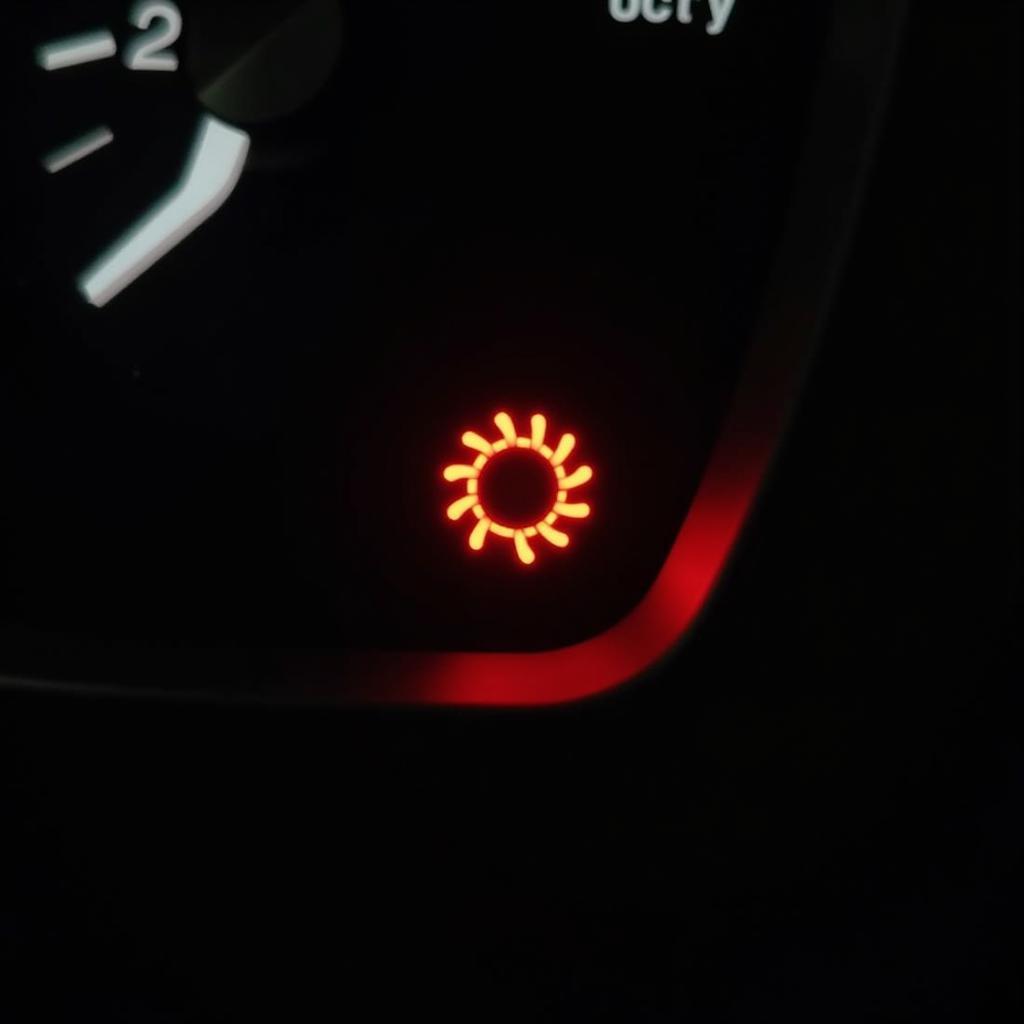That annoying squeal, screech, or grind you hear when you apply your brakes? It’s likely the brake warning tab, a small metal indicator designed to alert you when your brake pads are wearing thin. Understanding what causes this warning tab noise on brakes, and what you can do about it, is crucial for maintaining vehicle safety and preventing costly repairs.
Understanding Brake Warning Tab Noise
The “warning tab noise on brakes” typically manifests as a high-pitched squeal or scraping sound, particularly noticeable when you lightly apply the brakes. This noise occurs when the brake pad wears down to the point where the small metal tab, attached to the backing plate, comes into contact with the brake rotor. This contact creates friction and the resulting noise is your car’s way of saying, “Hey! It’s time for new brake pads!” Ignoring this warning can lead to more serious problems like rotor damage, reduced braking performance, and ultimately, a higher repair bill.
Have you ever experienced a brake warning light illuminating on your dashboard while driving a Volkswagen? This could be related to worn brake pads. You can find more information in our guide on the vw tiguan brake warning light.
What Causes the Warning Tab to Sound?
The most common cause is simply normal wear and tear. Brake pads are consumable items designed to wear down over time. The frequency with which you need to replace them depends on your driving habits, the type of brake pads, and the driving conditions. Frequent hard braking, stop-and-go city driving, and driving in hilly or mountainous terrain can accelerate brake pad wear.
Why is my brake warning tab making noise even after replacing the pads?
Sometimes, you might still hear the warning tab noise even after replacing the brake pads. This can happen if the rotors are warped or unevenly worn, causing the new pads to contact the high spots on the rotor. Another possibility is improperly installed brake pads or a faulty caliper. In such cases, a professional inspection is necessary. If you own a Mercedes and are experiencing brake wear warning lights, you can find relevant information in our article on mercedes brake wear warning light.
Diagnosing the Problem
While the warning tab noise is usually a clear sign of worn brake pads, it’s important to confirm the diagnosis. You can visually inspect the brake pads through the wheel spokes. If you see less than 1/4 inch of brake pad material remaining, it’s definitely time for a replacement.
How can I check my brake pads myself?
You can check your brake pads by turning the steering wheel all the way to one side, allowing you to see through the wheel spokes. Use a flashlight to get a better view of the brake pads. Look for the thickness of the friction material.
Fixing the Warning Tab Noise
The solution to warning tab noise is straightforward: replace the brake pads. This is a relatively simple job for experienced DIYers, but it’s often best to leave it to a qualified mechanic. They have the right tools and expertise to ensure the job is done correctly and safely. They can also inspect the rotors and other brake components for any potential issues. Experiencing brake light warning issues with your 2005 Hyundai Elantra GT? Our article on 2005 hyundai elantra gt and brake light warning light may provide some insights.
Preventing Future Warning Tab Noise
Regular brake inspections are key to preventing warning tab noise and ensuring optimal braking performance. It’s recommended to have your brakes inspected at least once a year or every 12,000 miles. Adopting smooth braking habits can also help prolong the life of your brake pads.
“Regular maintenance is far less expensive than emergency repairs,” says automotive expert, Michael Stevens, ASE Certified Master Technician. “Addressing brake issues promptly ensures both safety and cost-effectiveness.”
Conclusion
The “warning tab noise on brakes” is a clear signal that your brake pads are nearing the end of their lifespan. Ignoring this warning can lead to more significant and costly problems down the road. By understanding the causes and solutions, and by practicing preventative maintenance, you can keep your brakes in top condition and ensure your safety on the road. For those dealing with brake pad warning lights in their Audi B8 or VW T4, we have dedicated articles: audi b8 brake pad warning light and vw t4 brake pad warning light.
FAQ
- What does the brake warning tab sound like? It typically sounds like a high-pitched squeal or scraping sound.
- Can I drive with the warning tab noise? It’s not recommended. Get your brakes checked and replaced as soon as possible.
- How much does it cost to replace brake pads? The cost varies depending on the vehicle make and model, but it’s typically a relatively affordable repair.
- How often should I replace my brake pads? It depends on your driving habits and conditions, but generally every 25,000 to 70,000 miles.
- What can happen if I ignore the warning tab noise? You could damage your rotors and significantly reduce your braking performance, leading to a dangerous situation.
- Can I replace my brake pads myself? It’s possible, but requires some mechanical knowledge and tools. It’s often safer and more efficient to have a professional do it.
- How can I prevent premature brake pad wear? Avoid hard braking and aggressive driving habits.

